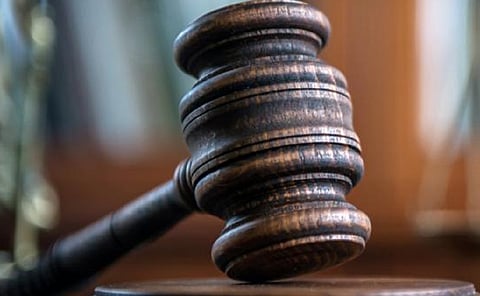

Legacy waste management in Haryana
Haryana has processed around 59 per cent of its legacy waste, according to a report filed by the chief secretary to the Government of Haryana, Urban Local Bodies (ULB) Department. Out of the 5.4 million tonnes of legacy waste generated from Haryana (except Gurugram), approximately 3.19 million tonnes (58.87 per cent) waste was processed.
The report filed on behalf of the state of Haryana was in compliance with the National Green Tribunal (NGT) order of May 9, 2022.
The municipalities have reported that processed fractions of legacy waste are being disposed of scientifically. Around 2.9 million tonnes of processed fractions such as compost / soil enricher, refuse-derived fuel, construction and development waste, among others were recovered from the total processed waste.
Of this, around 2.43 million tonnes have been disposed of by municipalities till date and approximately 101.05 acre land has been reclaimed.
Around 2,642.45 tonnes per day of fresh waste is generated from the 39 ULBs where remediation work is in progress. Of this, around 2,146 TPD is being processed and remaining is being dumped at dump sites, the report observed.
To manage the gap in processing of fresh waste in the municipalities, the ULB department has selected a concessionaire for Integrated Solid Waste Management (ISWM) cluster of Bhiwani, Sirsa and Karnal-Kaithal-Kurukshetra.
The concessionaire shall manage the collection, segregation, transportation and processing of waste in municipalities under the said clusters and concession period shall be 22 years.
The likely date to achieve 100 per cent processing of waste in these clusters is June 30, 2023 and the gap in processing of fresh waste in Bhiwani, Charkhi Dadri, Rania, Ellenabad, Kalanwali, Kaithal, Kalayat and Cheeka shall be covered.
Overflowing of sewer chambers at Triveni Ghat polluting Ganga
NGT January 12 directed a joint committee to inquire into the matter of sewer chambers at Triveni Ghat, Rishikesh overflowing and polluting River Ganga.
The court directed the Uttarakhand Pollution Control Board, the District Magistrate, Dehradun and Assistant Engineer, Garhwal Jal Sansthan, Ganga Pollution Control (Unit), Rishikesh to examine the veracity of the complaint and take appropriate remedial and preventive action in accordance with law within a month.
The district magistrate of Dehradun shall act as the nodal agency in the matter.
Pollution, encroachment of Chande Baba talab in Lucknow
Domestic effluent was found flowing into Chande Baba talab in Garhi Chunoti village, Sarojini Nagar tehsil, Lucknow district, according to a report by the Uttar Pradesh Pollution Control Board (UPPCB) January 13.
Water samples from the pond collected by UPPCB and analysed by the state laboratory showed faecal coliform from human excreta above the prescribed norms. A quarter of the total area of Chande Baba talab was covered by water hyacinth, the report stated.
Around 3 hectares of the total area (36.9 hectares) of the talab was found encroached by permanent and temporary houses during an inspection by a joint committee in compliance to an NGT order.
Guidelines for gold assaying and hallmarking centres
The Union ministry of environment, forest and climate change (MoEF&CC), in its report to NGT, said it is formulating policy for abatement, control and prevention of pollution, prescribing environmental standards for gold assaying and hallmarking centres.
These standards are implemented through the Central Pollution Control Board (CPCB) and state pollution control boards (SPCB) / pollution control committees (PCC).
The SPCBs / PCCs are required to enforce these standards and monitor the compliance by industries, the ministry said. They are also empowered to take necessary or expedient measures for protection and improving the quality of environment as well as prevention, control and abatement of environmental pollution.
The issuance of consent to establish / operate in a state / Union territory comes under the jurisdiction of SPCBs / PCCs concerned and they are empowered to adopt more stringent measures than the standards notified by the MoEF&CC for control and prevention of pollution in their respective states/UTs, according to MoEF&CC).